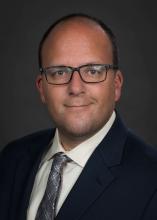Commentary
An accompanying editorial noted that intimate partner violence affects one in five children and has profound health effects on survivors and their children.
“The health, economic, and social ramifications of the COVID-19 pandemic have created unique challenges for families experiencing IPV, by increasing isolation, decreasing available safe and secure services and spaces (e.g., schools), and compounding preexisting inequities, especially for families from marginalized communities,” wrote Maya Ragavan, MD, MS, MPH, and Elizabeth Miller, MD, PhD, of the department of pediatrics at the University of Pittsburgh.
They stressed that pediatric health care providers should be aware of the emotionally coercive control used by abusive partners during the pandemic, including social isolation, manipulating child custody, and taking stimulus money.
Dr. Ragavan and Dr. Miller agreed with the authors that pediatric health care settings can play an important role in supporting families exposed to intimate partner violence, particularly by developing partnerships with IPV aid agencies.
Many pediatric offices may not have access to a comprehensive service like AWAKE, highlighting the importance of developing partnerships with community-based IPV agencies, which have been working innovatively during the pandemic to support families experiencing IPV. “Pediatric health care providers should work to develop formalized partnerships with IPV agencies to assist with staff training, clinical protocols and policies to address IPV, including survivor-centered approaches to care when IPV is disclosed,” they wrote. “Health care settings must recognize that IPV agencies are integral to the pediatric medical home and essential collaborators in the provision of healing-centered care for IPV survivors and their children.”
Among these, Futures Without Violence, a national violence-prevention advocacy and policy organization, offers recommendations on collaboration via the IPV Health Partners website.
Matthew I. Harris, MD, a pediatric emergency physician at Cohen Children’s Medical Center in New York, concurred that the pediatric care setting can be an access point for IPV referrals. “Whether a child comes into our center with an ear infection or an injury, there’s a standard screening process for safety in the home,” he said in an interview. That standard filtering identifies the presence of smoking, alcohol, guns, and potential abusers. “It’s not uncommon that we discover violence or physical, verbal, or sexual abuse not only toward the child but also another family member, including IPV.”
Children’s hospitals are well positioned to identify at-risk families and refer them to appropriate protective services, Dr. Harris said. “Ultimately, we are charged with the responsibility of ensuring children have a safe home environment and that involves minimizing any harmful impact on other family members, including those exposed to IPV.”
The authors received no funding for this study and reported no competing interests. Dr. Ragavan had no relevant conflicts of interest to disclose. Dr. Miller reported royalties for writing content for UpToDate. Dr. Harris disclosed no competing interests.
This article was updated 3/25/22.




